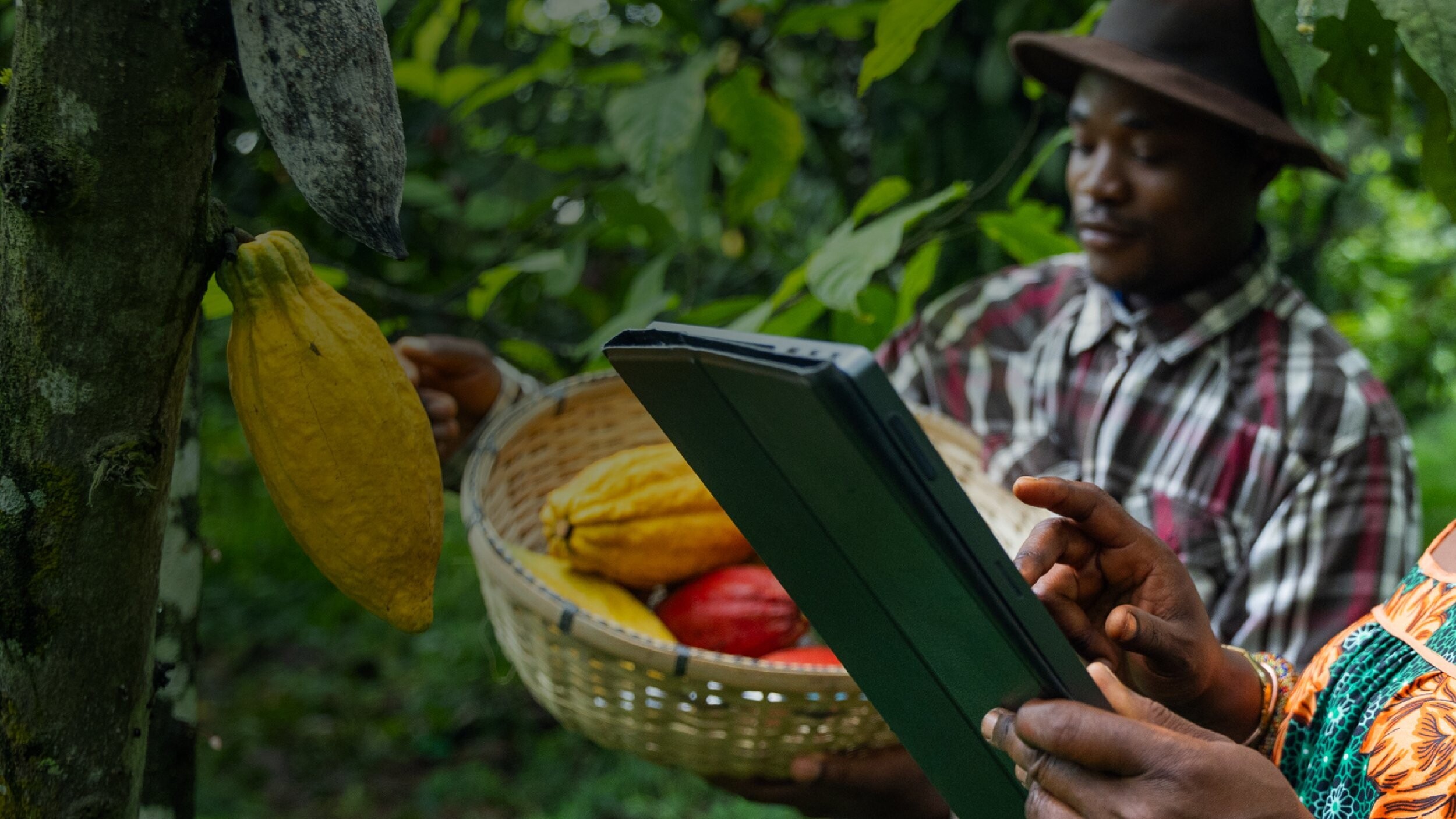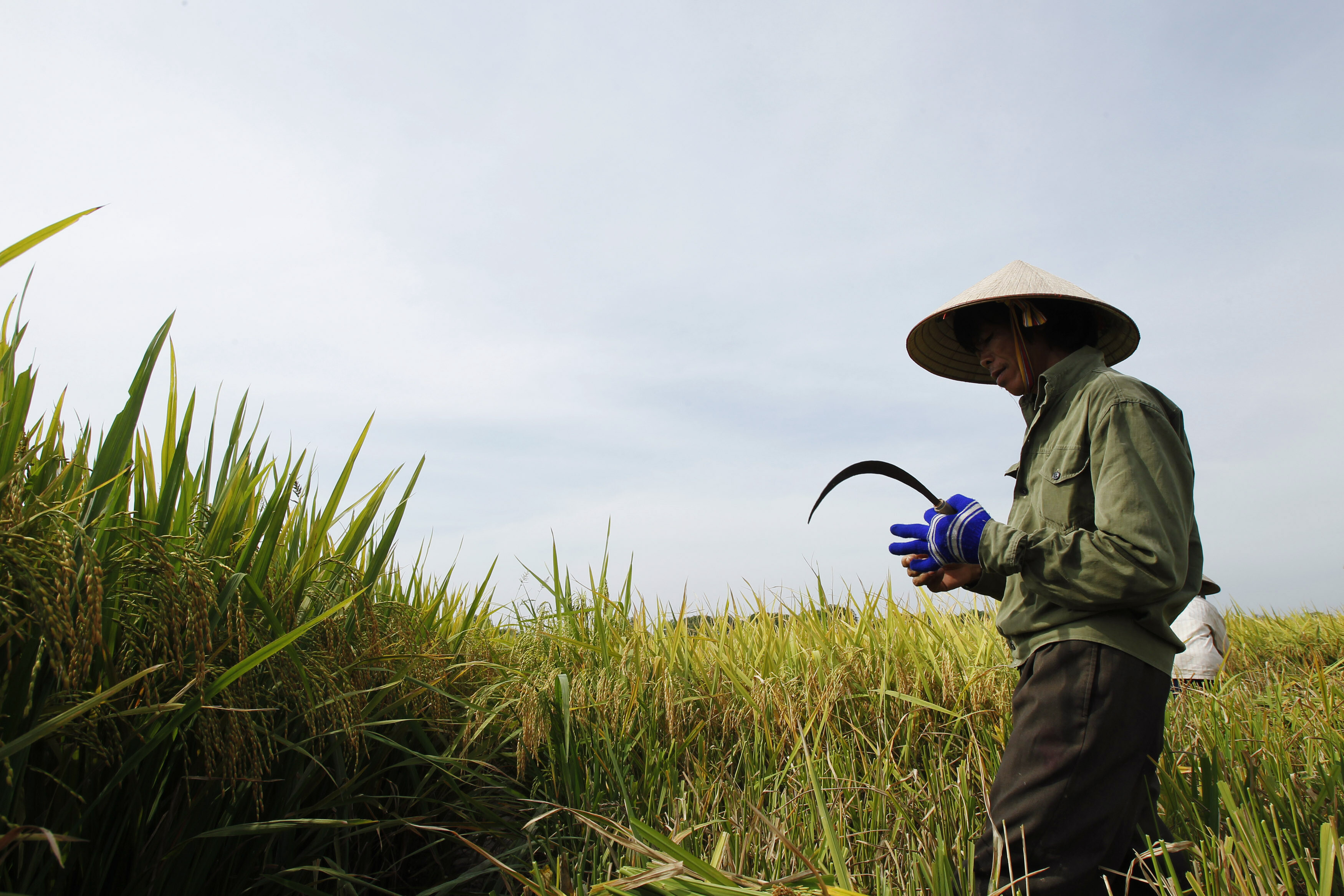The Collective Social Innovation Award: recognizing the power of collaborative action

The Schwab Foundation celebrates the pioneering work of the eight finalists in its new Collective Social Innovation Award, 2023. Image: Punjab Education Collective
Francois Bonnici
Director, Schwab Foundation for Social Entrepreneurship; Head of Foundations, World Economic ForumListen to the article
- Collective approaches are increasingly important within social innovation ecosystems for nurturing grassroots involvement.
- The Schwab Foundation celebrates the pioneering work of the eight finalists in its new Collective Social Innovation Award.
- The winners of the 2023 Awards are to be announced in January.
The social economy is advancing rapidly, with enterprises driven by the principles of equity and justice – rather than profit – now improving the lives of hundreds of millions of people around the world. The COVID-19 pandemic has underscored their importance in providing grassroots support to vulnerable groups across healthcare, education, financial services, agriculture and multiple other sectors.
At the same time, however, it is clear that no one organization or individual can achieve significant social change alone. For some time, social innovators have been building collective efforts to achieve inclusive, lasting and equitable social change. That is why the Schwab Foundation for Social Entrepreneurship has launched a new Collective Social Innovation Award to recognize the work of organizations coming together to address complex problems that cannot be tackled by individual actors, leveraging pooled assets such as knowledge, innovative solutions, human capital, access to networks and communication channels.
Many individual social enterprises already have an impressive history of working in collaboration and partnership with others. The field is evolving fast – especially with the application of new digital technologies – towards an increasing number of organizations that explicitly define collective action as their core function.
The new Collective Award – which will be bestowed to five winning organizations at the Annual Meeting of the World Economic Forum in January 2023 – aims to recognize and highlight examples of approaches that are innovating the very process of how change happens.
While there are many different ways that organizations can work collectively to deliver joint action, they often fall into four main categories: Movement Builders (supporting specific marginalized groups); Ecosystem Orchestrators (coordinating activity across a set of players in the system); Networks (supporting connections and co-learning); and Open/Digital Collaborative Platforms (creating digital infrastructures for service delivery across a common technology backbone).
Crucially, all these models take a “bottom up” approach to helping people who are excluded from the economic mainstream – a fact that reflects the community-level perspective of social innovators and their proximity to the people they serve. This means that collective approaches are as much about empowering and giving voice to communities as they are about bringing organizations together.
What is the World Economic Forum doing to champion social innovation?
Collective Social Innovation Award 2023 Finalists
The eight finalists of the Collective 2023 Awards, presented here in alphabetical order, showcase the power of collective action in tackling deep-seated problems in an extremely diverse range of settings:
Amazon Sacred Headwaters (Cuencas Sagradas Amazónicas)
The Amazon Sacred Headwaters initiative is a movement of 30 Indigenous nations in Ecuador and Peru. It aims to protect a region of 35 million hectares of tropical rainforests by establishing a bi-national protected region that is off-limits to industrial-scale resource extraction under Indigenous peoples’ stewardship.
The initiative is led by Amazonian Indigenous federations, but it also works in close cooperation with NGOs, the philanthropic community, social entrepreneurs and governments to further its goals and to highlight the important climate-protecting benefits of preserving the forest.
EYElliance
EYElliance exists to accelerate equitable access to eyeglasses. Nearly 1 billion people worldwide are visually impaired because they lack access to eyeglasses. Closing that gap could not only transform their lives, but also boost economies by improving learning outcomes in schools, increasing literacy and lifting productivity.
EYElliance tackles the problem by acting as a systems orchestrator, bringing together a multiplicity of stakeholders to help deliver eyeglasses at scale. It has successfully inspired a range of large institutions, which often move slowly, and it now partners with more than 55 organizations, many of which are pioneering new eyeglasses delivery solutions around the world.
Hispanic Star
Hispanic Star is a platform to advance Hispanics in the US. Though Hispanic and Latin-Americans constitute the largest ethnic minority today in the US and make a significant contribution to the country, they are often undervalued and marginalized.
Hispanic Star provides a unique bridge between companies and multiple Hispanic organizations, and it mobilizes corporate America to optimize opportunity for this community. It does this by working with both businesses and civil society, while acting as a platform to leverage data and technology to create an ecosystem that facilitates citizenship, equality, empowerment and inclusion programmes targeted to Latino communities.
MapBiomas
MapBiomas is a collaborative network of more than 70 organizations in 14 countries that monitors land use and land use change in order to promote the conservation and sustainable management of natural resources and fight climate change. The initiative includes universities, NGOs, and technology start-ups, which leverage state-of-the-art technology, shared tools and open codes to provide accessible and free data.
In Brazil, the initiative has for several years produced authoritative multi-year temporal maps and data that help decision-makers to fight against deforestation and fire, protect indigenous lands and conservation units, as well as conserve soil, water and biodiversity. MapBiomas is now operating throughout South America and in Indonesia.
Project Together
Project Together is an innovation platform based in Germany that supports the talents of the next generation in developing groundbreaking ideas and concrete solutions to future challenges and areas of conflict between society, economy and politics. This work ranges from circular economy projects to climate-positive agriculture to support for refugees.
Initially born as an accelerator focused on coaching for young social change-makers, it has evolved into a platform for open social innovation, using broad participatory processes enhanced by digital co-creation. It has already supported more than 1,000 social pioneers and built a network of over 500 volunteer coaches and 400 experts.
Punjab Education Collective
Punjab Education Collective exists to transform the public education system of the state of Punjab, India, and improve its educational standards against global benchmarks. It does this by identifying challenges faced by stakeholders on the ground and then co-creating solutions to improve the educational experience.
It is a collective of four organizations in the education space working together to impact 2.3 million students across 19,000 government schools in Punjab. Its co-created programmes involve parents, teachers, school and district administrators, NGOs, the private sector and young people themselves. These programmes aim to design solutions that leverage open technology to work at scale.
Tamarack Institute
Tamarack Institute develops and supports collaborative strategies to fight poverty and solve major community issues mainly across Canada. It focuses primarily on vulnerable individuals, families and communities in deprived rural or peri-urban areas and from Indigenous or immigrant backgrounds.
Tamarack’s two main goals are to develop tools and share stories of change happening at the community level, and to engage diverse, multi-sector leaders to apply these tools to help end poverty at the local level. The network has grown to more than 90 regional members, local non-profit or community associations, whose work impacts 22 million Canadians, equivalent to 58% of the country’s population.
WIEGO
Women in Informal Employment: Globalizing and Organizing (WIEGO) is a global network dedicated to improving the working conditions, rights, protection, economic opportunities and voice of all the working poor – particularly women – in the informal economy.
By combining the functions of a social movement and a think tank, it promotes change in several ways. These include improving statistics and expanding knowledge on the informal economy; building networks and capacity among informal worker organizations; and networking to influence local, national and international policy-making.
Don't miss any update on this topic
Create a free account and access your personalized content collection with our latest publications and analyses.
License and Republishing
World Economic Forum articles may be republished in accordance with the Creative Commons Attribution-NonCommercial-NoDerivatives 4.0 International Public License, and in accordance with our Terms of Use.
The views expressed in this article are those of the author alone and not the World Economic Forum.
Stay up to date:
Social Innovation
Forum Stories newsletter
Bringing you weekly curated insights and analysis on the global issues that matter.







